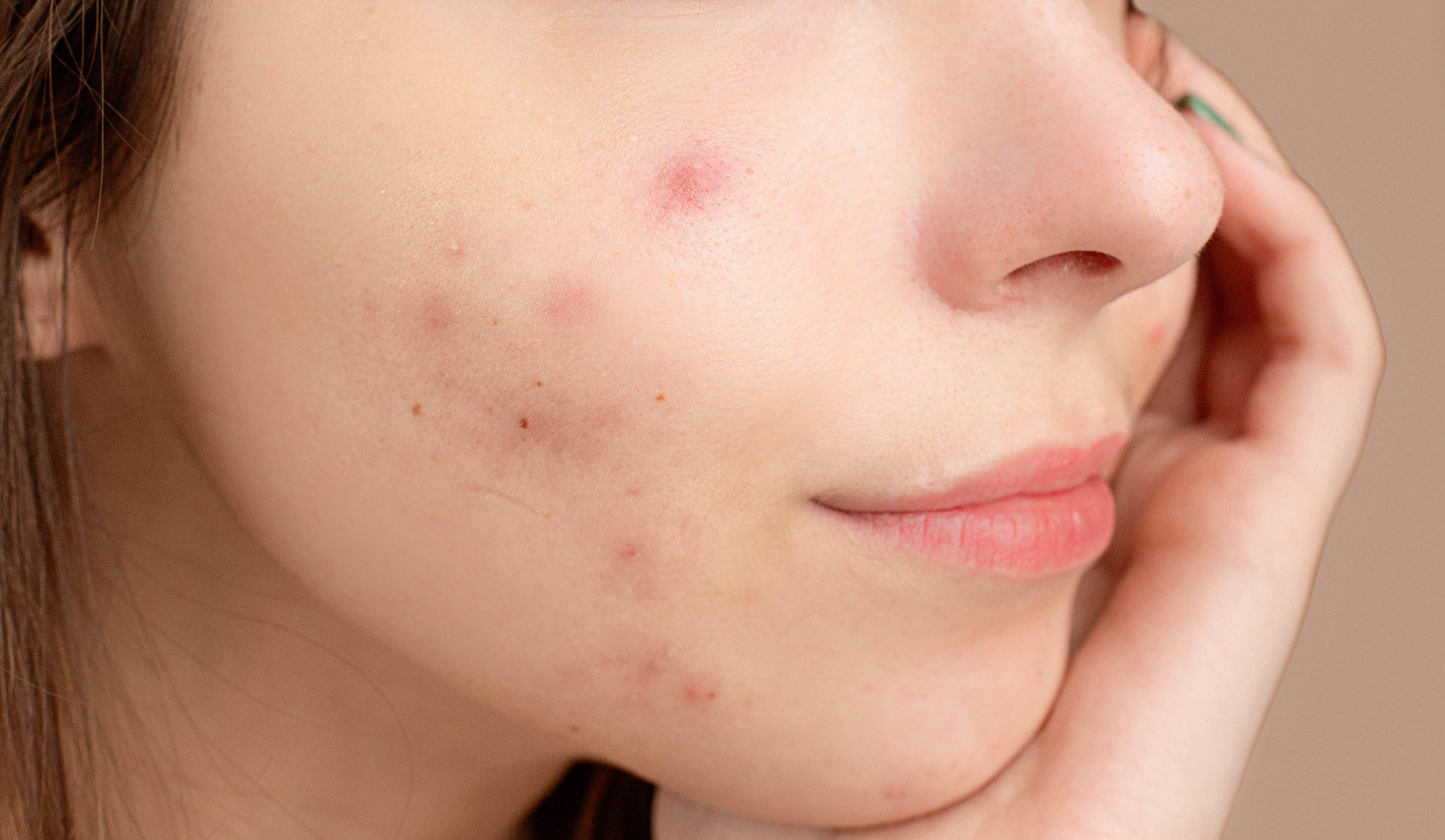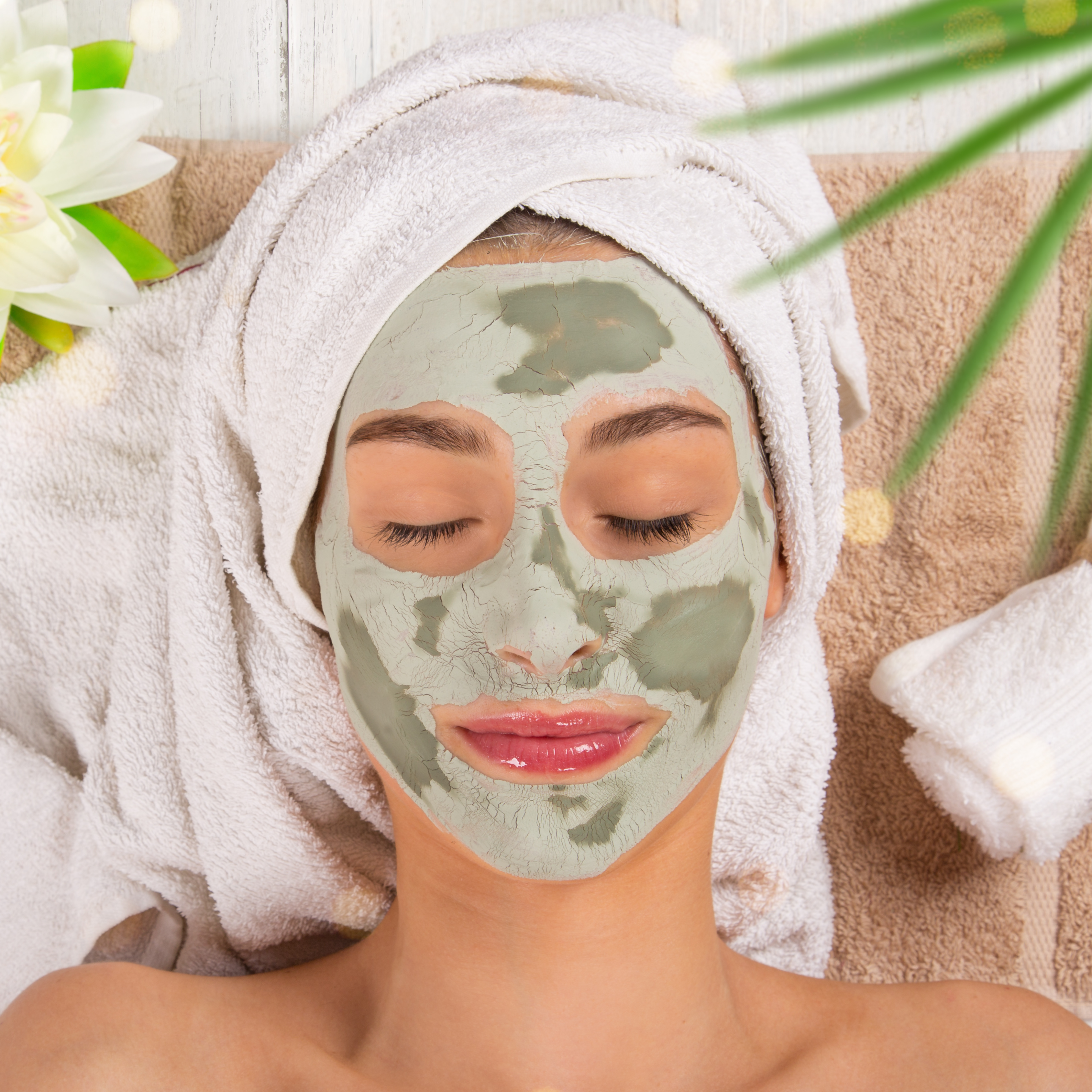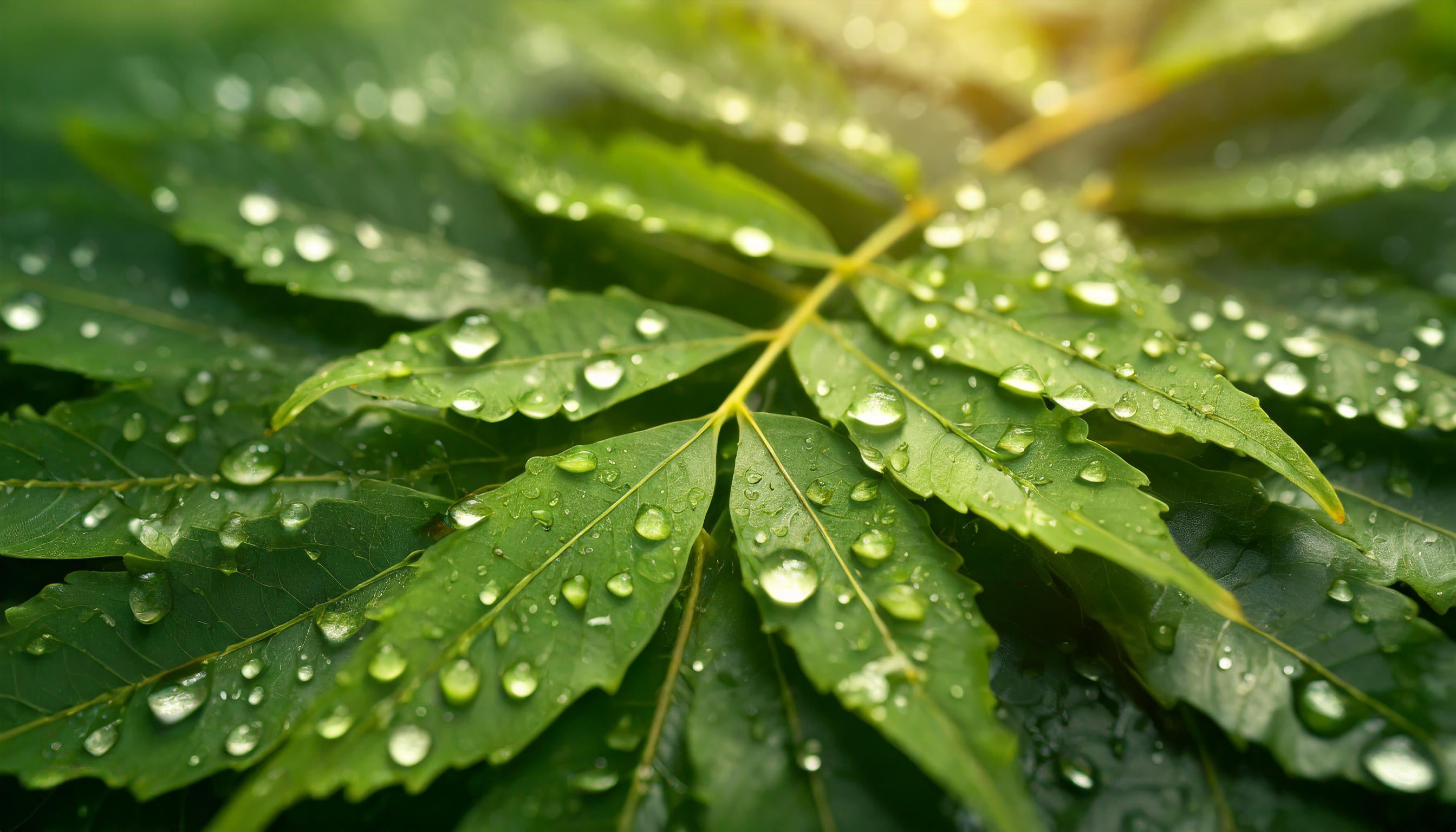
Date: 25/02/2024
The Power of Neem in Fighting Skin Inflammation and Acne
This page features 3 cited research articles

In the world of natural skincare, few ingredients have stood the test of time and scientific scrutiny like Neem (Azadirachta indica). Known for its versatile healing properties, Neem is a cornerstone of Ayurvedic medicine. Its prowess in combating skin inflammation and acne has garnered attention in the realm of modern dermatology. Through its unique ability to moisturize, cleanse, and hydrate the skin, Neem offers a holistic approach to managing acne-prone and inflamed skin. Let’s delve into the science that underpins the anti-inflammatory and acne-fighting efficacy of Neem.

Skin inflammation and acne are multifaceted issues influenced by bacteria, excess oil production, and clogged pores. The search for a comprehensive treatment leads us to Neem, which addresses these root causes with its rich phytochemical profile.
1. Moisturizing Properties
Contrary to the common belief that moisturizing is detrimental to acne-prone skin, proper hydration is crucial for maintaining the skin's barrier function and preventing irritation. Neem oil, enriched with fatty acids like oleic and linoleic acid, provides deep moisturization, supporting skin health and preventing the overproduction of sebum that can lead to acne. A study by Biswas et al. (2002) in the Journal of Ethnopharmacology underscores the importance of moisturization in treating dry skin conditions and indirectly reducing acne formation by maintaining a balanced sebum production [1].
2. Cleansing Action
The antibacterial properties of Neem play a pivotal role in its effectiveness against acne. Neem contains compounds like nimbin and quercetin, which have been shown to possess antibacterial and anti-inflammatory qualities. These compounds help cleanse the skin of bacteria that exacerbate acne, such as Propionibacterium acnes. Research published in the International Journal of Dermatology highlights Neem’s ability to significantly reduce colonies of acne-causing bacteria, attributing this effect to its bioactive constituents [2].
3. Hydrating the Skin
Hydration is key to maintaining the skin's elasticity and barrier function. Neem’s hydrating properties ensure that the skin retains moisture, which is vital for repairing inflamed skin and promoting a healthy, clear complexion. According to a study in the Journal of Clinical and Aesthetic Dermatology, maintaining adequate hydration levels can improve skin texture, reduce irritation, and support the healing process of acne lesions [3].

Embracing Neem for Healthier Skin
Incorporating Neem into your skincare routine can offer a multipronged approach to managing acne and skin inflammation. Its moisturizing, cleansing, and hydrating effects work synergistically to provide relief from acne while promoting overall skin health. For those seeking a natural remedy rooted in ancient wisdom and validated by science, Neem emerges as a compelling choice.
As we navigate through the myriad of skincare options, it’s reassuring to know that Neem stands as a beacon of holistic healing. By embracing Neem, we can harness its natural potency to soothe, nourish, and rejuvenate our skin.
References
- Biswas, K., Chattopadhyay, I., Banerjee, R. K., & Bandyopadhyay, U. (2002). Biological activities and medicinal properties of neem (Azadirachta indica). Journal of Ethnopharmacology, 82(2-3), 135-151. https://doi.org/10.1016/S0378-8741(02)00134-8
- Pai, M. R., Acharya, L. D., & Udupa, N. (2004). Evaluation of antiacne properties of neem leaves aqueous extract. A placebo-controlled clinical trial. International Journal of Dermatology, 43(12), 933-935. https://doi.org/10.1111/j.1365-4632.2004.02133.x
- Lodén, M., & Maibach, H. I. (2010). Dry skin and moisturizers: Chemistry and function. Journal of Clinical and Aesthetic Dermatology, 3(7), 23-32.
The use of scientific references in this blog post is intended to provide credibility and evidence-based support for the claims made about neem. It is always advised to consult with a healthcare professional for personalized medical advice.

